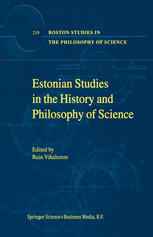

Most ebook files are in PDF format, so you can easily read them using various software such as Foxit Reader or directly on the Google Chrome browser.
Some ebook files are released by publishers in other formats such as .awz, .mobi, .epub, .fb2, etc. You may need to install specific software to read these formats on mobile/PC, such as Calibre.
Please read the tutorial at this link: https://ebookbell.com/faq
We offer FREE conversion to the popular formats you request; however, this may take some time. Therefore, right after payment, please email us, and we will try to provide the service as quickly as possible.
For some exceptional file formats or broken links (if any), please refrain from opening any disputes. Instead, email us first, and we will try to assist within a maximum of 6 hours.
EbookBell Team

4.7
46 reviewsThe development of geography also forms an interesting chapter in the history of the University ofTartu and in that of Estonian science in general. On the one hand, geography is a natural science in the broader sense ofthe word, on the other hand it is a study of human activity. This status of geography makes it particularly sensitive to the cultural and political circumstances under which scholarship and science have developed in Estonia. The article by Professor of Human Geography Ott Kurs (born 1939) and historian of science (PhD in geography) Erki Tamrniksaar (born 1969) "In Political Draughts Between Science and the Humanities: Geography at the University ofTartu Between the th th 17 -20 Centuries" is devoted to this topic. Among other things, the article states that regular instruction in geography started at the University of Tartu in 1826, when the second chair of geography in Europe was established here. Although the present book does not contain any studies on philosophy at th Tartu University in the 19 century, I would still like to mention two names. th In the early 19 century, I. Kant's philosophy was dominant at Tartu Uni versity. One of Kant's pupils, Gottlob Benjamin Jasche (1762-1839), who had worked under him as a Privatdozent in Konigsberg, served as a professor here from 1802-1839. In the history of philosophy he is primarily known as the publisher of Kant's Logic.